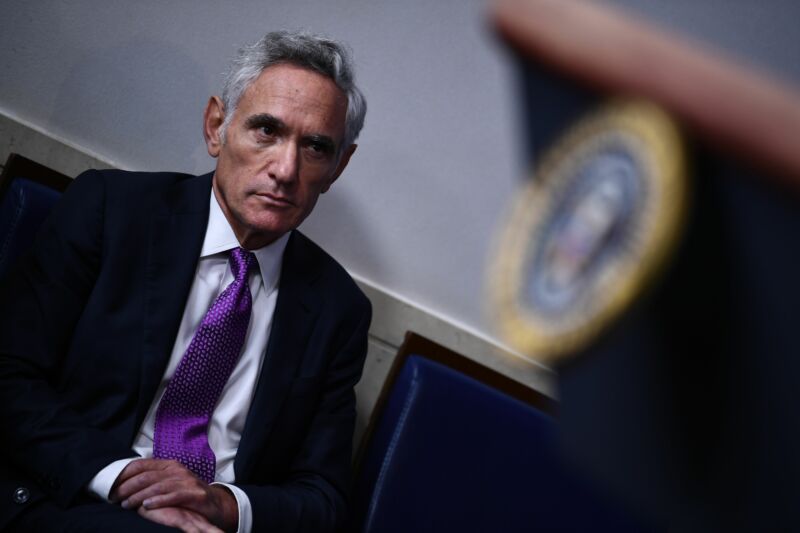
A new adviser to President Donald Trump is reportedly advocating that the pandemic coronavirus spread largely unrestrained so that the United States can reach “herd immunity”—an idea that infectious disease experts call “absolutely absurd,” “simply wrong,” and a strategy that actually amounts to the absence of a strategy, which could leave hundreds of thousands of more Americans dead.
Still, according to reporting by The Washington Post, the idea is being pushed by Scott Atlas, a neuroradiologist from Stanford’s conservative Hoover Institution who began advising Trump in August. In his short tenure so far, Professor Atlas has repeatedly made statements contrary to scientific evidence, such as saying that children do not spread the virus.
Officials say Atlas was recruited to the advisory role counter to the advice of Anthony Fauci, the country’s top infectious disease expert, and Deborah Birx, the White House coronavirus response coordinator. One senior administration official said Atlas, who has no background in infectious diseases, sees himself as the “anti-Dr. Fauci.”
Despite the lack of expertise, Atlas has reportedly championed a national pandemic response plan similar to that of Sweden’s, which largely eschewed draconian lockdown measures while trying to protect the most vulnerable populations, such as the elderly and immunocompromised. Though Sweden’s response has been widely criticized—the country has some of the highest infection and death rates in the world, and its economy has not been spared—Sweden has still been held up as a model by some.
Going herd
In essence, the strategy does little to stop the spread of disease in healthy people, who have less risk—but not zero risk—of dying from the infection and can then develop protective immune responses. If enough people in a population get infected and develop immunity, then the population can reach so-called “herd immunity.” When this occurs, there are so few people still vulnerable to infection that transmission grinds to a halt.
The trouble is, we don’t know how many people have to become immune to the coronavirus to reach the point of herd immunity. And we also don’t know much about immunity—people infected with the pandemic coronavirus, SARS-CoV-2, may only have fully protective immunity on the scale of months. That means that people who have recovered from infection will continually slip out of the “immunity” pool as time goes on, making herd immunity impossible to achieve without a vaccine that can produce more robust, longer-lasting protection.
Though there are various estimates of what proportion of the population has to be immune to halt the pandemic, some experts say it could be as high as 70 percent. As the Post points out, World Health Organization chief scientist Soumya Swaminathan estimates that 65 to 70 percent of a population would need to become infected to reach herd immunity. Given the 328 million people in the United States, disease spread to 65 percent of its population could mean 2.13 million deaths (assuming a 1 percent fatality rate).
No salvation
In a recent press conference, WHO executive director and infectious disease expert Michael Ryan lambasted the idea of countries looking to develop herd immunity. “There is no question in my mind—we are a long way from that and will remain a long way from that in the absence of an effective vaccine,” he said. Though the threshold needed to achieve herd immunity “may be lower than what’s previously suggested at 60, 70, 80 percent, we don’t know how much lower,” he said. And, on the whole, “we are nowhere close to the levels of immunity required to stop this disease transmitting.”
Dr. Ryan went on: “We need to focus on what we can actually do now to suppress transmission and not live in hope of herd immunity being our salvation. Right now, that is not a solution. And it’s not a solution we should be looking to for our salvation.”
Still, according to the Post’s sources, the Trump administration has already begun putting in place some policies that align with a “going herd” strategy, such as discouraging testing for exposed people who do not have symptoms, pushing to reopen schools and college sports, and expediting shipments of tests to nursing homes.
In response to The Washington Post’s article, Atlas released a statement via the White House denying his support of herd immunity, saying: “There is no policy of the President or this administration of achieving herd immunity. There never has been any such policy recommended to the President or to anyone else from me.”
https://arstechnica.com/?p=1702566

